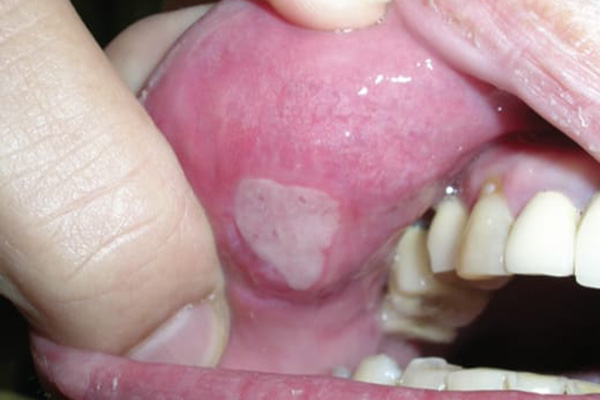Introduction
Recurrent Aphthous Stomatitis (RAS), also known as recurrent aphthous ulcers (RAU), is a common oral condition characterized by recurring painful ulcers in the mouth. These ulcers are rounded or ovoid in shape and are typically surrounded by redness. While the precise cause of RAS is not fully understood, there is a strong immunological factor involved. RAS affects up to 20% of the population and can be classified into three types: Minor, Major, and Herpetiform.
Types of RAS
1. Minor RAS
- The most common type, affecting the majority of individuals with RAS.
- Ulcers are smaller, usually less than 5mm in diameter, and occur in groups of 1 to 5.
- Typically found on the inner surfaces of cheeks, lips, and the floor of the mouth.
- Heal within about 14 days without leaving scars.
2. Major RAS
- The second most common type.
- Ulcers are larger, often exceeding 10mm in diameter.
- Can occur on any surface in the mouth and take longer to heal, sometimes up to 2 months.
- Larger ulcers may heal with scarring.
3. Herpetiform RAS
- The least common type, occurring in clusters of more than 15 ulcers at a time.
- Each ulcer is around 1 – 3 mm in diameter, and they can merge to form larger ulcers.
- Typically heal within 2 weeks without causing scarring.
- Not caused by herpes viruses, despite the name.

Minor RAS

Major RAS

Herpetiform RAS
Symptoms and Causes
RAS is characterized by recurrent episodes of painful ulcers that can last from a few days to several months.
Some patients experience tingling or burning sensations 2 to 48 hours before ulcers appear.
Underlying factors such as anemia, vitamin deficiencies, certain medications, stress, and mechanical trauma (from sharp teeth, braces, etc.) can trigger or worsen RAS.
In some cases, RAS can be linked to broader diseases like Behcet’s disease, MAGIC syndrome, PFAPA, cyclic neutropenia, and HIV infection.
Diagnosis
- Diagnosis relies on patient history and clinical examination.
- A medical history is essential, and blood tests may be conducted to identify underlying causes.
- In persistent cases, a biopsy might be performed to rule out other causes of mouth ulcers.
Complications and Self-Care
- Complications depend on the severity and underlying conditions.
- RAS can lead to discomfort, decreased nutritional intake, weight loss, and mimic infections or cancer.
- Self-care measures include avoiding hot, spicy, acidic, salty, or hard foods, maintaining a balanced diet, good oral hygiene, and regular dental appointments to address triggers like sharp teeth or broken fillings.
Homoeopathic Management
Recurrent mouth ulcers, also known as aphthous ulcers, can cause significant discomfort and pain. Homoeopathy offers a holistic approach to managing and preventing the recurrence of these ulcers. By considering the individual’s physical, emotional, and mental aspects, homoeopathic remedies are selected to address the underlying causes and provide effective relief. Here are some key remedies and their indications for managing recurrent mouth ulcers:
- Arsenicum Album
Indications: Suitable for individuals who are anxious, fearful, and meticulous. They may have a fear of death and worry about their health excessively.
Symptoms: Burning pains in the mouth with ulcers, painful mouth ulcers, unhealthy gums that bleed easily, ulcers on the tongue with a blue-colored base, ulcers worsen in cold temperatures and improve in heat. - Mercurius Solubilis (Mercury)
Indications: Beneficial for patients with swollen and spongy gums, excessive salivation, and a bad odor from the mouth.
Symptoms: Chronic untreated mouth ulcers, painful ulcers with bleeding, mouth ulcers associated with excessive pain and tenesmus in the intestine, sensitive stomach region, symptoms worsen at night and with consuming acidic foods. - Nitric Acid (Nitricum Acidicum)
Indications: Effective for individuals past middle age who are irritable, vindictive, and have a good appetite.
Symptoms: Mouth ulcers mainly in the soft upper palate, pain as if a splinter is cutting inside the mouth, excessive salivation, blisters on the tongue and genitals, ulcers and blisters bleed easily, worse in the evening. - Borax Veneta (Borate of Sodium)
Indications: Beneficial for hot and sensitive mouth ulcers, worsened by eating acidic foods, dry mouth despite excessive salivation.
Symptoms: Ulcers break inside cheeks, gums, and sometimes on the tongue, white fungus-like growth in the oral cavity, constant sensation of heat in the mouth, ulcers bleed easily. - Phosphorus
Indications: Suitable for oversensitive individuals with swollen and bleeding gums, dry tongue, and a constant desire to drink cold water.
Symptoms: Swelling and redness of the tongue, soreness in the mouth, burping with a sour taste after meals, sensitivity to external stimulants. - Kali Chloricum (Chlorate of Potassium)
Indications: Effective for stomatitis with dryness and pain, aphthous ulcers with a gangrenous appearance, bad breath.
Symptoms: Profuse secretion of slightly acidic saliva, ulcers with a grey base, flatulence, distension of the abdomen. - Condurango
Indications: Useful for improving the digestive system, cracks and ulcers in the corners of the mouth, constant burning pain in the mouth extending to the stomach.
Symptoms: Ulcers noted in the stomach and intestines, associated symptom of vomiting, hardness felt in the liver region.
It’s important to remember that homoeopathic treatment is highly individualized. A qualified homoeopath will consider the patient’s overall constitution, mental state, and specific symptoms before prescribing a remedy. Additionally, dietary and lifestyle changes may be recommended to complement the homoeopathic treatment and prevent the recurrence of mouth ulcers.
Consulting a professional homoeopath is recommended for accurate diagnosis, remedy selection, and guidance throughout the treatment process. Homoeopathic management of recurrent mouth ulcers aims to provide holistic healing and long-term relief without causing any side effects.
